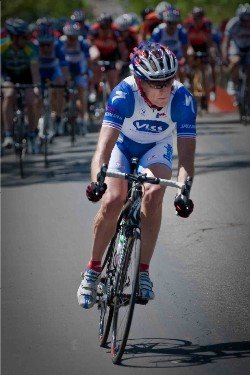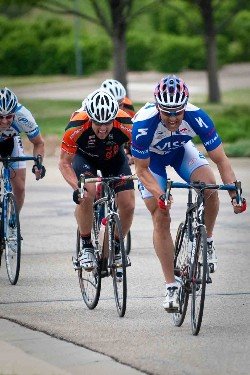Posted Mar. 10, 2009 in VeloNews.com
". . . Recovery really takes place from one training session to the next. At times this might be eight hours, 12 to 14 hours, or a full day of 24 hours. What is important is to get off on the right food recovery wise, and that first means paying close attention to nutrient intake in the hours post-training. For quicker recovery turnaround time, such as less than 12 hours before the next workout, speedy nutrition replacement is essential. . . Depending on your level of fuel depletion and the timing of your next ride, it might be helpful to focus on munching at regular intervals. Very high rates of glycogen synthesis do occur in the four to six hours post training when large amounts of carbohydrate are consumed every 30 minutes. When you have longer recovery times available to you, such frequent feeding it not necessary. . . (read the entire article at the link above).
". . . Recovery really takes place from one training session to the next. At times this might be eight hours, 12 to 14 hours, or a full day of 24 hours. What is important is to get off on the right food recovery wise, and that first means paying close attention to nutrient intake in the hours post-training. For quicker recovery turnaround time, such as less than 12 hours before the next workout, speedy nutrition replacement is essential. . . Depending on your level of fuel depletion and the timing of your next ride, it might be helpful to focus on munching at regular intervals. Very high rates of glycogen synthesis do occur in the four to six hours post training when large amounts of carbohydrate are consumed every 30 minutes. When you have longer recovery times available to you, such frequent feeding it not necessary. . . (read the entire article at the link above).




























No comments:
Post a Comment